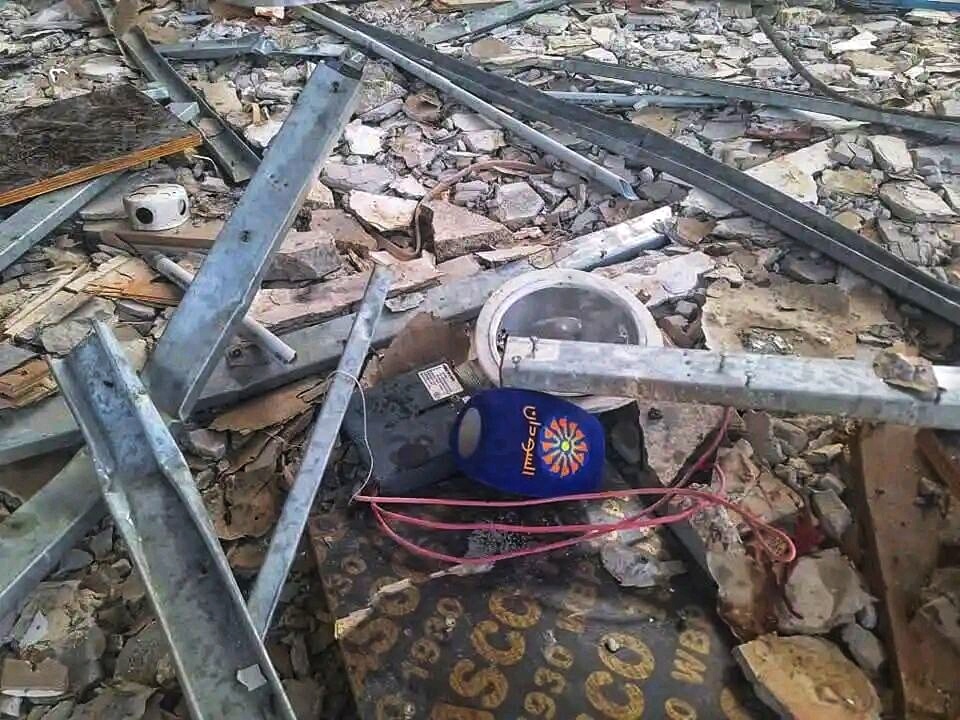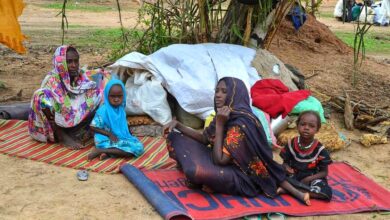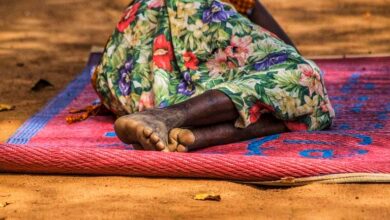Sudan war turns journalism deadly amid killings, arrests, threats Sudan Media Forum
KHARTOUM, Sudan, May 3 (Sudan Tribune)

Sudanese journalists face extreme danger amid the war that erupted in mid-April 2023, turning their profession deadly with reporters targeted by killings, gunfire and arrests, the Sudanese Journalists Syndicate (SJS) said.
The SJS has documented numerous attacks by warring parties, particularly the paramilitary Rapid Support Forces (RSF), according to syndicate reports.
Deadly gamble
One journalist, identified only as H., recounted a perilous reporting trip last March.
After getting security clearance, his team travelled from Omdurman towards Khartoum when an army vehicle ahead of them came under a hail of bullets, he told Sudan Tribune.
“Moments of panic struck everyone,” H. said, adding that army forces returned fire, allowing the team to proceed.
He said death remains the “closest danger” facing reporters in Sudan.
Systematic targeting, violations
Thirty journalists, including five women, have been killed since the war began, a recent SJS report showed.
Reporters have faced arrests, detention, abuse and torture, with most killings resulting from direct gunfire or torture in detention centres run by conflict parties, the syndicate said.
The SJS Freedoms Secretariat documented 509 violations against journalists in 2024, including four recent arrests, said Secretariat head Iman Fadl Al-Sayed.
Six criminal complaints were recently filed against journalists, adding to existing cases, and four journalists, including one woman, remain detained by warring parties, Fadl Al-Sayed said.
International support, displacement challenges
Reporters Without Borders (RSF) is coordinating support for Sudanese journalists stranded by the war, said Osama Boughaela, the group’s East Africa Advocacy Officer.
Direct aid has reached 38 journalists inside Sudan or in neighbouring countries like Kenya, Uganda and Egypt, he told Sudan Tribune.
Support focuses on financial aid for basic needs, as displaced journalists face challenges with residency permits and administrative issues, Boughaela said.
RSF is also providing training and leading an international advocacy campaign, warning of the dire situation.
“The goal is to ensure journalists’ protection, facilitate their safe resettlement, and defend their right to report information freely despite the harsh conditions,” Boughaela said.
While several international groups offer aid, displaced journalists still “endure unstable conditions” and face numerous problems due to the conflict and unemployment, the report noted.
Grave professional challenges
Beyond security risks, professional challenges are immense.
About 90% of media institutions have been destroyed, forcing shutdowns, the SJS estimates. Hundreds of journalists lost their jobs and income as a result.
Political activists and military personnel have entered the media field, altering the professional landscape, reporters say.
Press freedom has sharply deteriorated. Many independent journalists see the war as a setback that “dashed their hopes” for free media after the 2019 December Revolution that ousted long-time ruler Omar al-Bashir, the report added.
Specter of bias
The war has fueled media bias, with some journalists and outlets appearing to favour one side, violating objectivity standards, analysts and journalists say.
Coverage sometimes adopts narratives serving one party or spreads inaccuracies about the other.
Since the war began, some outlets have shown a tendency to present one-sided stories, while warring parties classify journalists by perceived loyalty and refuse cooperation with those deemed sympathetic to the enemy, according to reporters.
Impact on society
Media bias directly shapes public opinion and can sow confusion about the truth, said social researcher Thuraya Ibrahim.
She told Sudan Tribune she had observed some journalists attempting to steer interviews to fit a certain narrative.
“Some journalists try to direct experts’ statements to serve their biases,” Ibrahim said.
She urged objective reporting to counter rumours and warned against fabricated news designed to distract from real issues.
The media has a significant responsibility to report objectively and cover violations ethically, respecting victims and sources, Ibrahim stressed.
Accusations and counter-narratives
Accusations and counter-narratives from warring parties further complicate journalists’ work, with factual reporting often branded as bias.
Parties accuse reporters and agencies of working for the enemy to intimidate or co-opt them, journalists said.
Reporters confirmed their organizations have been accused by both sides, without proof, in attempts to force them to engage with or publish propaganda.
One Sudanese correspondent for a foreign agency, speaking anonymously, called the working conditions “extremely dangerous.”
He said he had been detained more than 10 times and interrogated by security services over reports deemed sensitive, including one on alleged killings by an army-allied battalion in Khartoum’s Halfaya district.
Ongoing risks
Risks persist inside Sudan and extend to neighbouring countries, excluding Europe.
Some neighbouring states restrict Sudanese journalists’ movements, deny work permits or exert pressure on them to leave, reporters said.
Journalist A, in one such country, said authorities repeatedly denied him a permit. Journalist M, in another, described official stalling.
Inside Sudan, four anonymous journalists cited risks including killing, injury, arrest, kidnapping, threats and displacement.
They reported difficulties obtaining information from officials in the government’s Port Sudan base, who sometimes withhold it or refuse access based on the outlet’s perceived affiliation.
Technical challenges like poor internet and power cuts, the spread of fake news amid a lack of independent monitors, and movement restrictions imposed by warring parties add to the difficulties.
—-
This news report was prepared by Sudan Tribune and published via the platforms of Sudan Media Forum member organizations on the occasion of World Press Freedom Day to shed light on the situation of journalism and journalists in Sudan. #StandWithSudan




